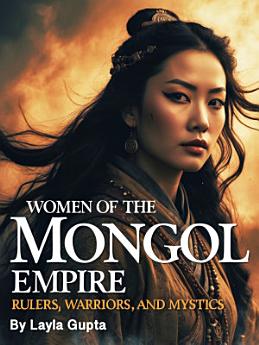Women of the Mongol Empire: Rulers, Warriors, and Mystics
About this ebook
In Mongol society, the roles of women were complex and multifaceted, with their status varying based on class, family, and geographic location. Mongol women, particularly those in the ruling class, enjoyed a level of autonomy and authority that was rare in other contemporary cultures. They were often consulted on political matters, wielded power behind the scenes, and occasionally even led military campaigns. This was in stark contrast to the patriarchal norms of many neighboring societies, where women were relegated to domestic roles with little opportunity for political or military involvement.
The traditional Mongol lifestyle, characterized by its nomadic nature, placed a premium on the strength and endurance of both men and women. While men were typically responsible for hunting, warfare, and leadership, women played vital roles in maintaining the household, managing livestock, and supporting the logistical needs of the army. Women’s work was not confined to the home; many participated directly in the economic, political, and social spheres of Mongol life. Their roles were vital to the survival and expansion of the Mongol Empire, as they ensured the smooth functioning of the empire’s vast territories.








